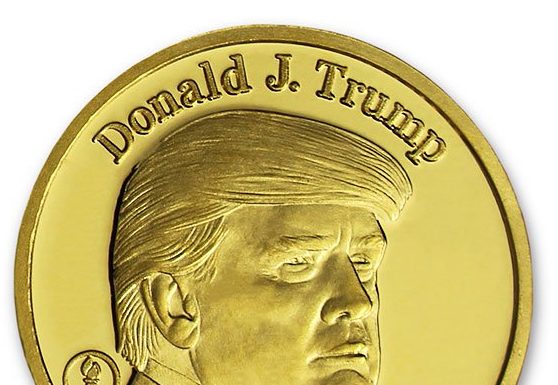By Mike Gleason, Money Metals Exchange
Everybody knows that President Donald Trump favors larger scale reductions in interest rates. He wants to stimulate the economy and stock market ahead of next year’s election.
Fed policymakers are supposed to stay out of politics and make their decisions based solely on the economic data before them. But it would be naïve to believe they don’t harbor political biases.
They have been under relentless attack by President Trump. They see his attacks as posing a threat to the so-called “independence” of the Federal Reserve. They may even fear that if he is re-elected he will threaten the existence of the Fed as an institution.
Could the Federal Reserve be deliberately withholding stimulus to try to get Trump defeated? It may sound like just another baseless conspiracy theory. But, in fact, there is some basis for believing Fed officials have the motive and opportunity to sabotage the Trump economy.
Don’t take it from me. Take it from former New York Fed President Bill Dudley. On Wednesday, he penned an article for Bloomberg titled “The Fed Shouldn’t Enable Donald Trump.” Dudley argued that the central bank should refuse to support the economy while the Trump administration is waging trade wars. Instead, he claimed, the Fed should force President Trump to “bear the risks – including the risk of losing the next election.” Dudley went so far as to suggest that “the election itself falls within the Fed’s purview.”
Those are things anyone who has held a senior position at the Fed simply doesn’t say – at least not publicly. Former U.S. Treasury Secretary Larry Summers, a Democrat, was aghast.
CNBC Anchor: Former New York Fed president, Bill Dudley, is arguing that the Fed should not cut interest rates further in response to president Trump’s trade war with China. Strong’s sharp criticism from foreign Treasury Secretary Larry Summers, who called it quote, “The worst case of Trump derangement syndrome in the financial world.”
Larry Summers: For a trusted former official of the Fed, whose thinking is inevitably going to be tied to the Fed, to recommend that they raise interest rates so as to subvert the economy and influence a presidential election is grossly irresponsible, and is an abuse of the privilege of being a former Fed official. So, it was the taking of the economic dialogue out of the realm of economics, and the putting it in a realm of politics and suggesting that the Fed was there, and was acting politically, or might act politically, that was empowering the Fed’s critics, and I thought, was profoundly disloyal.
Pay no attention to that disloyal man behind the curtain, Summers tells us. The powers that be don’t want the public to believe there’s an anti-Trump resistance movement operating inside the Federal Reserve.
But if there were, and the people leading it were smart, they too would denounce Dudley. They would swear up and down in their public pronouncements that they aren’t motivated by politics.
If we had a sound monetary system based on an objective standard of value with interest rates determined by the free market, then there would be no possibility of election meddling by central bankers. The opinions of Bill Dudley and Jerome Powell would carry no more weight than those of any number of other economic commentators.
Perhaps President Trump will come to regret not more fully embracing sound money principles. On the 2016 campaign trail, he railed against Barack Obama’s Fed chair Janet Yellen for being politically motivated.
Once he became President, Trump became singularly focused on low interest rates. He appointed Fed insider Jerome Powell to chairman. He thought Powell was his guy. But Powell soon revealed that his true loyalty was to the Fed itself – an institution that arguably wields more power than any government agency.
President Trump now faces an uphill battle for re-election. He can expect no help from Democrats in Congress or the Fed in stimulating the economy.
His Treasury Department does have some stimulus cards of its own to play, such as administrative changes that would lower capital gains tax burdens.
Treasury Secretary Steven Mnuchin said he is also considering the issuance of 50-year and 100-year Treasury bonds. It would be an opportune time to do so. Long-term bonds are being gobbled up with record-low yields attached to them. The global appetite for sovereign debt has proven to be insatiable even as yields sink below zero in many countries.
Eventually, it will all end badly for bondholders as inflation eats away at the real value of the bonds and yields rise to more sensible levels. In the meantime, savvy investors are diversifying into precious metals as a more promising alternative to negative real yields on paper. And as a hedge against the risk of a Fed-induced recession and stock market crash ahead of the 2020 election.



